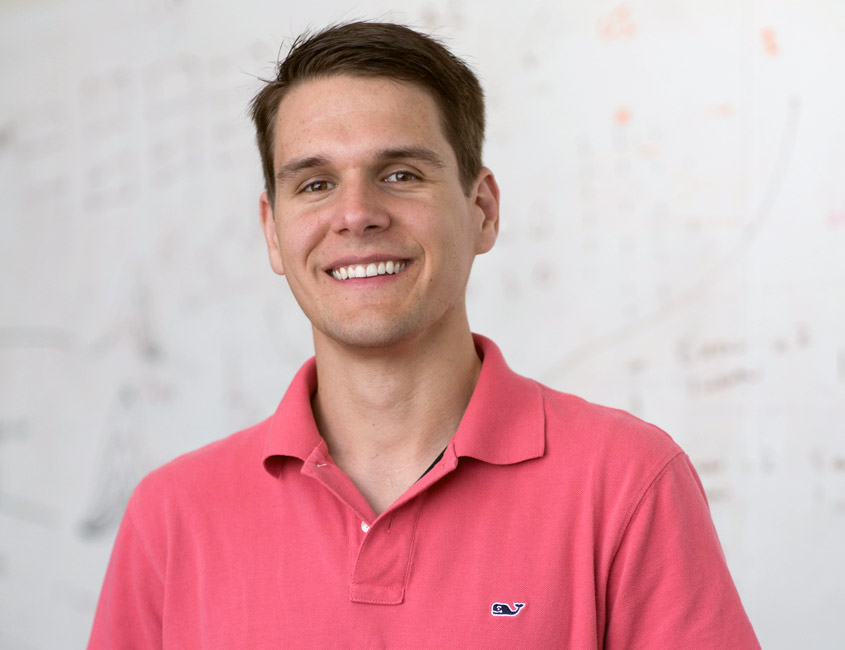Both of my parents are career scientists so I was very taken by science from a young age. In college I found myself to be particularly interested in the quantitative and analytical aspects of chemistry, as well as conducting research. Right after undergrad I decided to come back to the Midwest to pursue an advanced degree in analytical chemistry.
Many of my friends attended UW and had nothing but good things to say about their experiences. I had visited several times throughout undergrad and had already started falling in love with the school and the town. I first met Professor Coon at a conference at Orlando where we discussed our scientific interests and the work being done in his lab.
His ongoing research efforts were very exciting and I could tell that his lab would yield many interesting research opportunities. Beyond the work being done, the culture of lab seemed like somewhere that I would thrive—a lot of driven, self-motivated people. The really nice lab space didn’t hurt either.
I am now a senior informatics development specialist, a role I transitioned into so that I could continue working on a number of projects that I was doing as a graduate student. The biggest of these projects is building generic, flexible, highly interactive web-based tools that will allow us to disseminate and explore data with our collaborators quickly.
Our main goal is to be able to support all kinds of data collected in the lab for the different types of applications the Coon group is involved in—proteomics, metabolomics, and lipidomics. Beyond that, a big focus of these efforts is to find ways to integrate these different types of datasets that are traditionally analyzed more independently. Long term, another goal we have is to make everything that we’re building more broadly available to the larger scientific community once it’s mature and developed and stable enough. Hopefully we can put these tools into the hands of anyone doing multi-omics research. Ideally, even people who don’t have programming expertise will be able to do really powerful computational tasks without doing code on their own, and in a fun and intuitive way.
In that spirit I am also trying to mentor some of the newer students in the lab who might not have high computational expertise and teach them some basic coding practices and different ways that they can more directly interrogate their data and make meaningful comparisons. One day I may make the leap into industry, but for right now I am still enjoying my research, the lab environment, and being on the cutting edge of MS-based omics technology.

